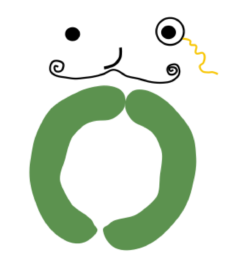The importance of Honey Bees as pollinators is immense. They work hard pollinating the crops that in turn puts food in our bellies. But have you ever stopped and asked the question “what food tastes good to bees?”. Many people know the fact that bees drink flower nectar, however new research from Stanford university shows that small amounts of yeast in the nectar is tolerable to honey bees whereas bacteria-colonised nectar is unpalatable.
A team of Researchers from Stanford university lead by Ashely. P. Good tested the hypothesis that microbes found in flower nectar that were also present in the gut of honey bees could affect the bees efficiency as pollinators. Good and her team analysed the gut microbiome of 150 honey bees and then created synthetic nectar inoculated with 3 different species of bacteria and one species of yeast found in the guts of the honey bees. Over a period of two weeks the feeding habits of the bees were observed to see which nectar they preferred.

The findings showed that the honey bees avoided nectar colonised by the 3 bacterial species whereas the addition of yeast to the nectar had no effect on the bees feeding preferences. This suggests that honey bees are not bothered by the presence of yeast in their nectar but would rather feed on nectar free of bacteria colonies.
One reason behind this could be that the bacteria present in the nectar altered its chemical composition making it less desirable to honey bees.
Good and her team conducted a second experiment measuring the changes in nectar composition when different microbes were present in the nectar. They carried out chemical analysis of the nectar and detected changes in the concentrations of H2O2, sucrose, glucose, and fructose as well as changes in the pH. The results supported the claim that bees respond to chemical changes in the nectar. The bees are unlikely to be able to taste the actual microbes present in the nectar, but instead can detect the differences in the pH and concentrations of various chemicals such as Sucrose and H2O2.it is also possible that other compounds not measured in this experiment may play a role in bee preferences.
The relationship between the bees and the bacteria is not completely understood. All three species of bacteria that ruined the taste of the nectar for the bees were also found in the honey bees gut, suggesting that they are not detrimental to the bees overall health adding to the confusion of why the bees avoided nectar colonised by all 3 bacteria species.

This study gives an insight into the role of microbes in altering pollinator and feeding behaviours which is a topic not well studied. Learning more about bees and their gut-fauna may help us improve our knowledge of pollinator behaviours and deepening the understanding of our stripy friends.
Good, A.P., Gauthier, M.-P.L., Vannette, R.L. and Fukami, T. (2014). Honey Bees Avoid Nectar Colonized by Three Bacterial Species, But Not by a Yeast Species, Isolated from the Bee Gut. PLoS ONE, 9(1), p.e86494.
